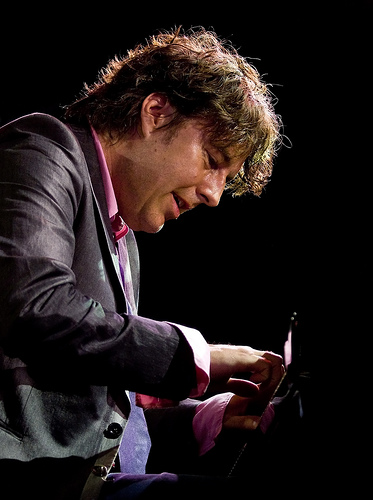This is all responsible, sure. But I believe that the perspective can be a bit skewed. Only the most self-disciplined of us could maintain such nutritional and financial order in our lives by viewing (and wording) the above philosophies as such. Wouldn’t we rather choose tasteful yet healthy food selections, embark on physical activities that coordinate well with our busy daily routines (such as parking a bit further from work in order to incorporate an extra 10 minutes of walking a day), and spend money in such a way that supports our needs while truly making us happy?
can be a bit skewed. Only the most self-disciplined of us could maintain such nutritional and financial order in our lives by viewing (and wording) the above philosophies as such. Wouldn’t we rather choose tasteful yet healthy food selections, embark on physical activities that coordinate well with our busy daily routines (such as parking a bit further from work in order to incorporate an extra 10 minutes of walking a day), and spend money in such a way that supports our needs while truly making us happy?
Dr. James Goldsworthy, one of the professors from my graduate music program, imparted an extremely influential philosophy regarding practicing. As an alternative to practice rooms, he gave us the notion of “play rooms.” In “practice rooms,” students repeat a tricky scale passage 20 times with a metronome. In “play rooms,” however, students explore various ways to play a section according to their musical desires and curiosities.
Personally, I would rather enter the “play room.”
This may all sound appealing so far, but we need to be realistic. How can a student incorporate playing their instrument at home on a consistent basis if they have cross-country after school every day, band on Mondays and Thursdays, yearbook on Tuesdays, and gymnastics on Wednesdays?
I myself have had this kind of schedule all throughout my middle school and high school years. I remember finding it extremely difficult to find a block of 30-45 minutes to sit with my instrument on any day other than Fridays and Saturdays. But I found that after dinner and before watching a half-hour of TV (my only relaxation activity for the day), I could sit with my instrument for 15-20 minutes. I learned to focus on the two measures of my music where the fingering is tricky. Or I used these 15 minutes to play my favorite song, but experimented with different interpretations—more lyrically the first time, and a bit more rhythmic and upbeat the second. These short sessions became relaxing for me—a refreshing break from the stresses of school work. I was quite surprised at how much easier a piece seemed when I focused on these small goals throughout the week before Friday came along, when I finally had time to sit down for a full block of time. This was easier than waiting until Friday to figure everything out from scratch.
Additionally, I was able to make music on a consistent basis throughout the week on my own terms rather than dreading the weekly lesson where I had to admit to my teacher yet again that I could not find a 30-minute block of time to practice every day. Even after high school when I went off to college and stopped taking music lessons, I had perceived making music as a form of relaxation, where I could sit down with my instrument even for just a few minutes a day whenever I choose. Because this is what I had done throughout my childhood.
It’s all a matter of perspective. Rather than “practicing” everyday to prepare for a weekly lesson, play music throughout the week to indulge your musical desires and curiosities. Your journey with music can then last you a lifetime.
To learn more from Richard Woo, take a complimentary trial piano lesson with him!
Richard Woo, Piano Teacher


COMMENTS